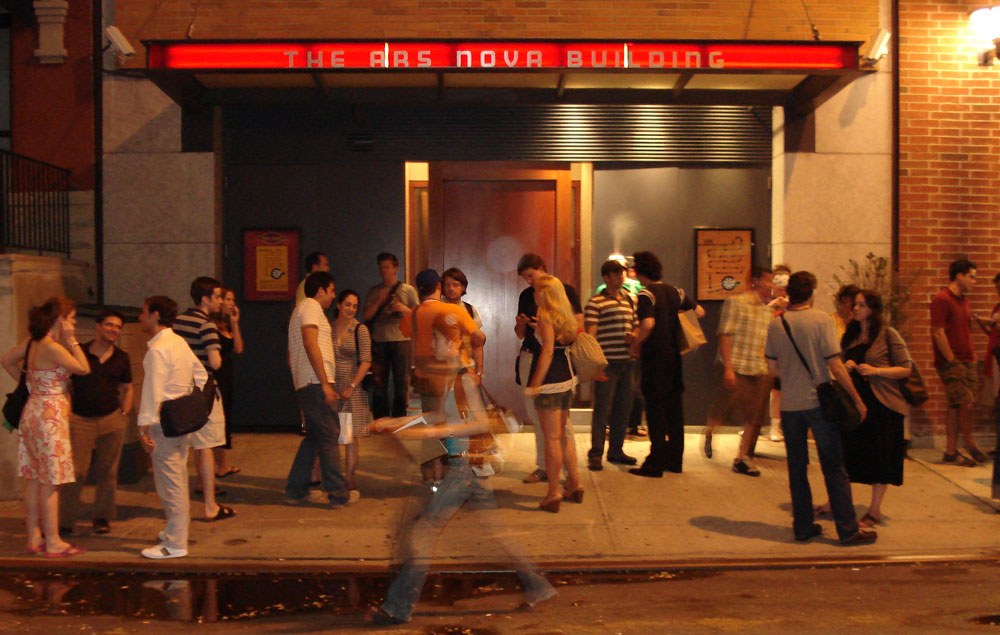
March 30, 2020; New York Times
As NPQ has reported, many museums and theaters have had mass layoffs. The Kennedy Center in Washington DC laid off 725 workers, while the Tenement Museum in New York City reduced its normal staff complement of 138 workers to five.
These cases are not unique. Writing in the New York Times, Laura Collin-Hughes remarks on “the California Shakespeare Theater, which nixed its entire 2020 season; the Oregon Shakespeare Festival, which will be dark through September 6; and Arena Stage in Washington, DC, which canceled the rest of its season have all announced layoffs or furloughs with their closures.”
Also writing in the Times, Zachary Small documents many museum examples, writing that, “The Carnegie Museums of Pittsburgh have furloughed more than half their 1,003 employees. Last week in Los Angeles, the Hammer Museum laid off 150 part-time student workers. And recently, the Massachusetts Museum of Contemporary Art laid off almost three-quarters of its 165-person staff.”
The layoffs are hardly a surprise. Both museums and theaters seek to have people buy tickets and come to their facilities, which of course cannot happen during this period of physical distancing.
Yet some institutions have taken a different route. Of course, wealthier institutions with strong reserves often are better able to weather the economic storm. Even so, wealth alone is not always decisive. It may not be surprising that the Metropolitan Museum of Art (“The Met”) has said it will guarantee salary payments for its 2,200 employees through May 2nd. But it might be a little more surprising, that until recently, it had only guaranteed salary payments through April 4th.
“Our highest priority remains to support our staff as best we can in helping to keep everyone safe and as financially secure as possible,” Daniel Weiss, the museum’s president, tells Small. Weiss adds, “We realize that this announcement of a four-week extension of full salary support does not provide enduring comfort, but at the moment it is the best we can do in a rapidly evolving situation.”
Sign up for our free newsletters
Subscribe to NPQ's newsletters to have our top stories delivered directly to your inbox.
By signing up, you agree to our privacy policy and terms of use, and to receive messages from NPQ and our partners.
The Met is also paying time-and-a-half hazard pay for staff who have to continue working onsite during the shutdown and is looking into tapping into its endowment to be able to retain staff beyond May 2nd, if the shutdown continues past that day, as seems likely.
The American Museum of Natural History does not have the financial reserves of the Met, but it did announce this week that it would pay full-time staff through May 15, 2020, by requiring employees to take two vacation days per week and paying for the other three days.
A more surprising case, perhaps is a theater profiled by Collins-Hughes known as Ars Nova, an off-Broadway nonprofit theater company.
On March 23, Collins-Hughes explains that Ars Nova took what its managing director, Renee Blinkwolt, called a “calculated leap of faith,” canceling the remainder of its season, which was to have ended June 30, and promising to pay “in full each person who had been scheduled to work during that time: staffers, artists, independent contractors.” The number of people involved: 223. The price tag? $685,000—not an inconsiderable sum for an organization with a $3.7 million budget.
Blinkwolt and Jason Eagan, the company’s artistic director, say good fortune gave them the ability to make the choice they did. Unlike most theater companies that hold galas (now cancelled) in the spring, Ars Nova held its gala in the fall. Also, because the theater had started a capital campaign in 2018, they had six months’ worth of working capital (Collins Hughes notes that the median nonprofit theater in New York City has one month’s working capital).
Even so, Blinkwolt and Eagan acknowledge they are taking a calculated risk. “I mean, you calculate the risk,” Eagan tells Collins Hughes, “and then you do what you can—but you do everything you can. The right decision for us is leading through our values, following our hearts. It sounds cheesy, but it’s the whole reason we exist.”
Blinkwolt adds that while it is true that nonprofit theaters have paper-thin margins, the people they employ “probably don’t have three to six months of their living expenses in their savings account, and so aren’t built to weather this kind of storm.”—Steve Dubb












